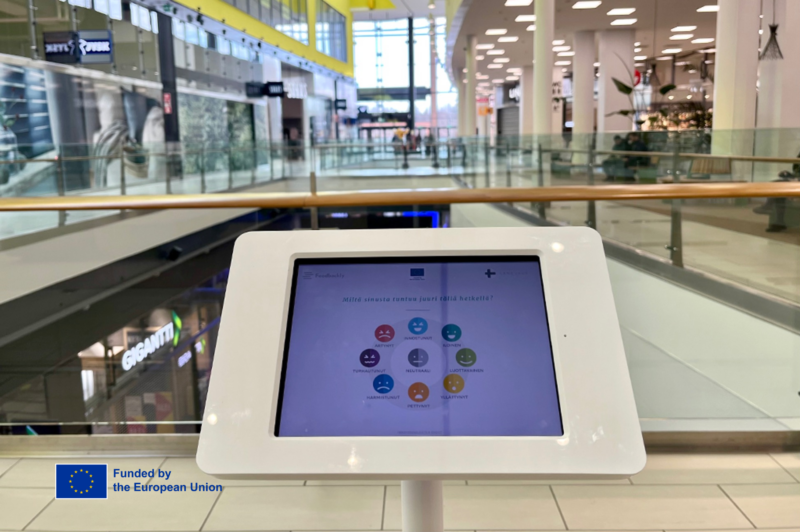In an era where customer experience is a key determinant in building a firm’s success and boosting growth, businesses are on the constant lookout for ways to improve it and provide leverage. However, many businesses are yet to realize that Customer Experience (CX) is a concept that must be nurtured within the firm before you portray it to the rest of the world.
Good customer experience is one where the customer gets due attention, optimistic attitude, prompt service, and increased presence, and it’s the employees who are in charge of this.
If your employees, the backbone of the company don’t understand the importance of customer experience and aren’t committed to enhancing it, there’s only so much your other CX strategies like advertising and promotions can do.
It is simple. Happy employees make happy customers.
A study has proven that businesses enjoying a high level of customer experience levels have 1.5 times more employee engagement as opposed to their counterparts with poor customer experience. In addition, Gallup in its report “The State of the American Workplace” has shown that businesses with highly engaged employees experience improved customer relationships that resulted in a 20% increase in sales. This shows the invaluable and inevitable link between customer experience and employee experience. A company would struggle to achieve one without the other as they are mutually dependent.
Think about it like this. It is employees who communicate with customers directly and cater to their needs, and if the employee doesn’t invest enough effort into hooking the customer with the product, the business loses out. Similarly, a strong, loyal customer base is important to generate revenue and pay salaries, wages, and incentives to employees. That’s not all. As the company flourishes as a result of positive customer experience, employees also benefit from career growth, a strong reputation, etc.
So, how do you get employees on board?
Focusing on your employees first and improving their experience is important before you devise specific strategies to drive CX.
Pay Attention to Employee Engagement
Every organization must build an organizational culture that supports and promotes employee wellbeing. It’s important to make your employees feel that they are more than just workers who come and work to earn a salary. Make them feel an integral part of your business by valuing their contribution to the organization. Encourage employees to step up and provide their opinions on business activities and the latest decisions. Engaged employees are proud and respectful of the companies they work in and put in their maximum potential to help them succeed. They treat clients of the company as one of their own and treat them to the best level.
Deliver the Benefits of Customer Experience
Aligning all the business activities towards a customer-centric approach and integrating the value of good customer service into the corporate culture will help employees understand the importance of CX. Convey the benefits of achieving high levels of customer experience and how it will impact the overall organization positively. Offer career growth opportunities to encourage employees to provide an impressive experience to the customers. You can also introduce other financial and non-financial incentives linked to their performance. Employees who are strongly attached to their company and value it as a supportive pillar in their life won’t hesitate to go that extra mile to make customers happy.
Offer Training and Support
As customers, we all have come across a fair share of employees who appear clueless when we ask a question about the product or service, and this is certainly not good for business. Very often, this can be because of inadequate training or support from seniors. When employees do a mistake, it’s important to be supportive and help them rectify their mistakes rather than reprimanding them. Make them feel that the organization is looking out for them, and they are not alone. Create a support structure within the organization where employees are linked with their peers, managers, senior executives, and other leaders for help whenever necessary. Good customer experience doesn’t stem from a single root. It’s a result of a collective effort from every actor in the organization.
Acknowledge and Reward
One of the main reasons for low employee experience in many organizations is that employee achievements go unnoticed. Acknowledging and rewarding employees for their efforts towards improving customer experience, whether big or small goes a long way in boosting their enthusiasm to do more. Include employees’ efforts to create a better environment for customers in their yearly evaluations to benefit their career’s progress. Such efforts will reward a business in return with a pool of highly motivated and dedicated employees who are committed to achieving customer experience.
Create an Enjoyable Working Environment
If your employees are functioning under constant pressure to meet sales targets and complete their assigned activities within short deadlines, think about it again. While achieving the desired objectives and goals are at the core of the business’s success, excessive demands on employees can lead to frustration, disengagement, and a high level of absenteeism. Creating a conducive environment to work with scheduled times to take breaks and interact with peers can help employees work more productively. Make the working environment fun and enjoyable by diffusing hierarchy and helping employees in every rung to interact and brainstorm on new ideas. This can also help them come up with innovative ways to promote customer experience.
The Key Takeaway
Therefore, it is important to understand the correlation between employee experience and the customer experience in your business to improve both simultaneously. Focusing on the overall wellbeing of employees and understanding their value to the organization will help you build a pool of employees who will stick with you even in the toughest times. It will also build a good perception of your brand among customers and automatically benefit you with a loyal and strong customer base.
In today’s information age, customers do not only focus on the quality and nature of the product or the prominence of the brand in the market. There is a multitude of factors that contribute to customer experiences like the social reputation of the organization and the ethicality of its activities. Whether you like it or not, customers are vigilant about the activities of the brand they interact with and place prominence on businesses that make efforts to fulfill their social responsibility, act morally, and treat their employees well.



